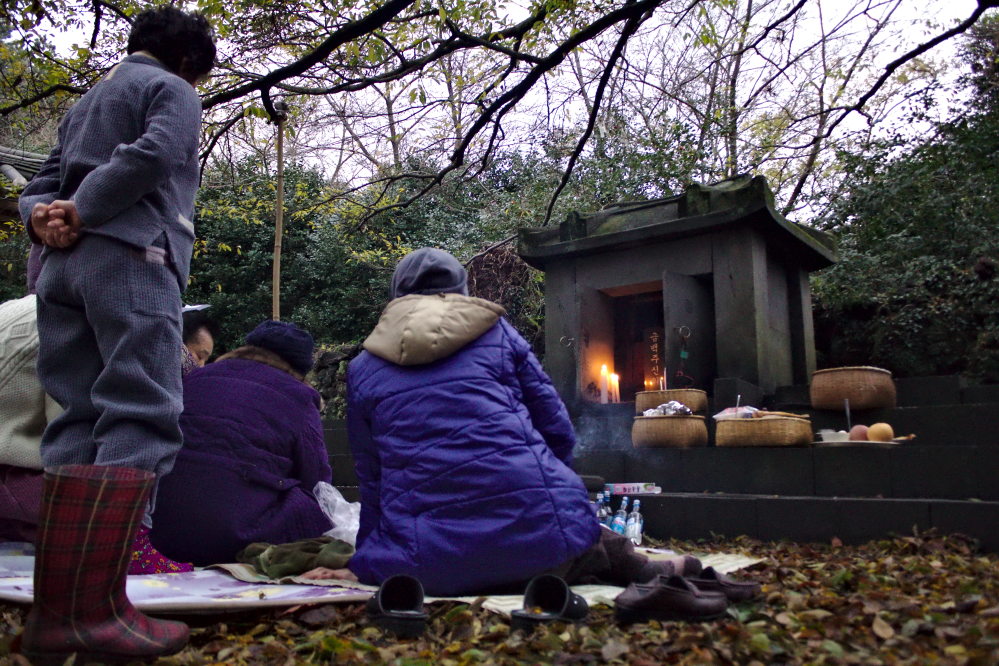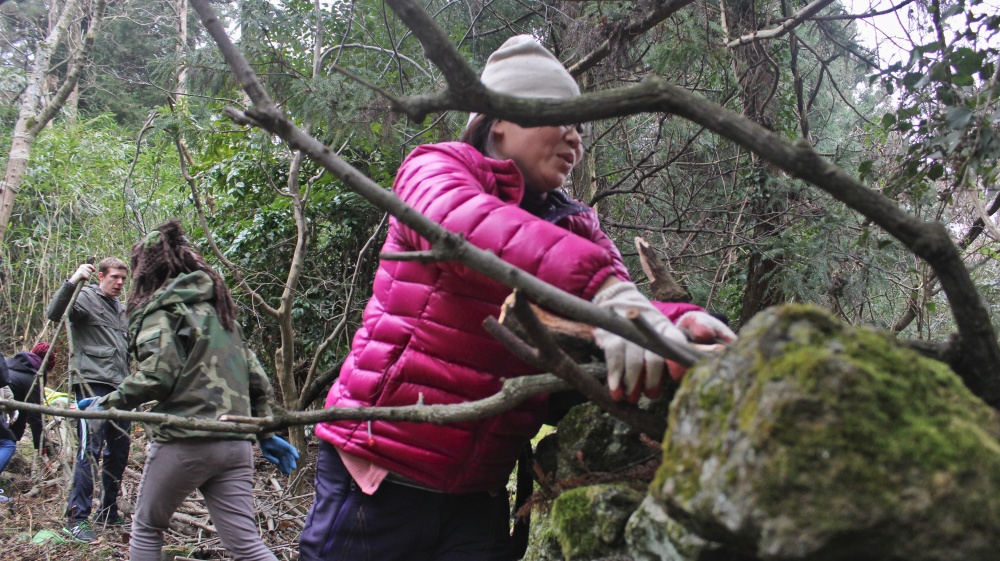14 months ago a shamanistic shrine was desecrated on Jeju Island, South Korea. Today, a group of Jeju natives and outsiders began the rebuilding process. In 1948, the mountain village of Juksung was destroyed and most of its inhabitants murdered in cold blood. The Jeju Uprising, also know as the April 3rd Massacre, took its toll on the village. Juksung and surrounding villages were particularly affected by the brutal purge of so-called communist sympathizers. It is estimated that some 30,000 Jeju Islanders were killed by the national army and police forces. A number of younger women from Juksung were able to escape and now many of these women, now in their seventies and eighties, reside in nearby Odeung Village. Every year in lunar January, Juksung’s original residents make the short journey up the mountain to worship their tutelary gods, Kim Grandfather God and Go Grandmother Goddess. Some 14 months ago, the shrine in which they worship was desecrated. Its holy trees were cut and the concrete walls of the shrine were smashed. My original blog post about the situation, which I had been following for a year, was translated into Korean and featured several times in local media. Now, I’m working with a newly formed group of local activists, the Senjari Rangers, to rebuild the shrine. Today, I, along with 16 others, started with the initial clean up. The next steps will be fundraising and rebuilding the shrine.


After the short meeting adjourned we filed quietly into Sulsaemit shrine.  The first order of business was to perform a ceremony to appease the gods, something of an apology for further disturbing the holy trees. Two methods of ceremony were used, a shamanic cleansing of taboo with alcohol and a Buddhist chant directed to the gods, performed by Tommy Tran, a member of the Taego order of Korean Buddhism. (link to Tran’s blog on Jeju history)
The first order of business was to perform a ceremony to appease the gods, something of an apology for further disturbing the holy trees. Two methods of ceremony were used, a shamanic cleansing of taboo with alcohol and a Buddhist chant directed to the gods, performed by Tommy Tran, a member of the Taego order of Korean Buddhism. (link to Tran’s blog on Jeju history)


Next, a local Jeju resident, made a shamanic style offering of Korean rice wine. He lit candles and burned prayer paper to eliminate taboo form the shrine. A local shaman gave a member of the team advice on how to simply dispel taboo. ‘Bujung‘ or taboo must be cleared from the shrine to prevent disturbances. 
 After performing the rituals it was time to get to work.
After performing the rituals it was time to get to work.




 There were lost treasures waiting for us.
There were lost treasures waiting for us.






Before we left, we made sure to close the ‘gods’ doors’, small hollowed out areas in the ground found in Jeju shrines that are opened at the beginning of a ceremony.



To explore Jeju’s struggle to preserve its unique identity in the face of rapid development and outside investment check out this Facebook group: Jeju Anti-Destroyers Community






A touch of archaeology there 🙂
LikeLiked by 1 person
I thought about our camp back in the day when I looked at that photo. I remember unearthing some sort of clay basin during the archaeology camp. I saw Dr. Smith mention that we had helped protect that area. Hopefully the same will happen here. Good to hear from you!
LikeLike